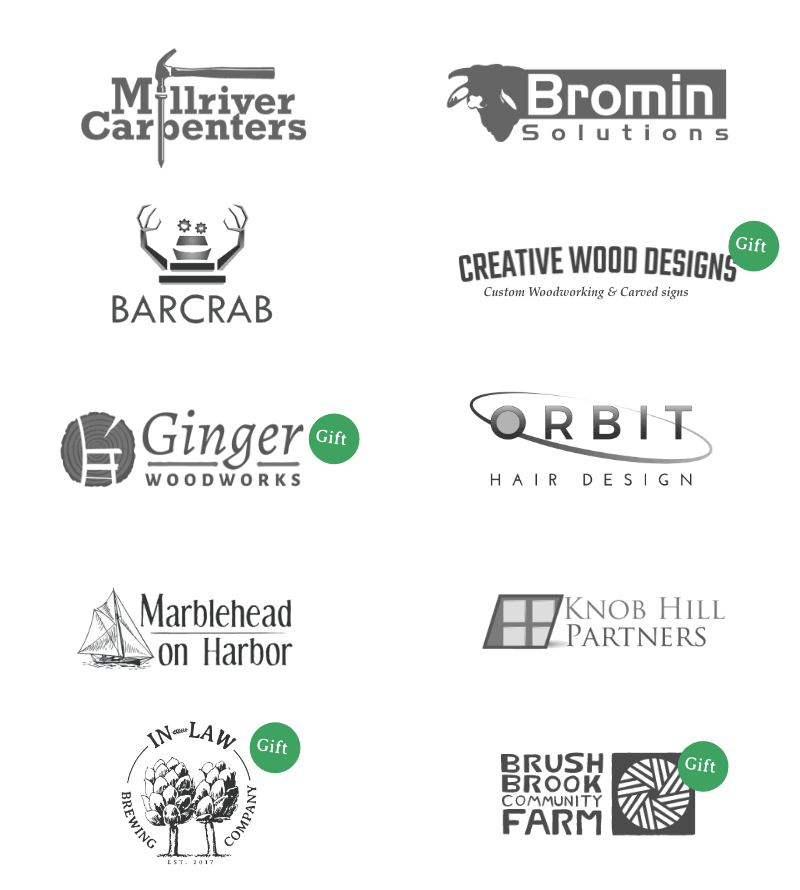Freelancing in the Gift
My experience in doing design work in the Gift economy
The gift economy is a method of exchange based on trust. I do projects from time to time using it.
How it works
I provide my services to you as a gift, and I trust you to gift back what (if anything) you feel is appropriate. That’s it. No formal contracts. And I’m happy to give a ballpark or range as a starting point.
If that excites or at least interests you, good! We’ll still have timelines, deliverables, and super-fun strategy sessions. The websites and logos aren’t free and value-less. They have value. What precisely that value is—is up to you.
I have had the privilege of working on six projects so far under the gift economy. We've exchanged branding and websites for everything from cash to handmade beds, carved signs, beer, and bread.
The agreement:
From my end, I promise to deliver your project to the best of my ability, within scope, and on time. I’m honored by your trust and I’ll strive to leverage my experience to help you succeed.
From your end, you trust I’ll keep my side of the agreement and offer what feels right; some upfront, some in the middle, some at the end. This extra layer of trust makes this model stand out from the default economy of commerce.
Each time I begin a new project in this model, the client and I enter in a little nervous and curious. But, once out the other side, with the new design solution completed, we feel refreshed that we engaged in a new way of doing business.
But, why?
I do what I do for the same reason I tend to my garden, plant saplings, and turn sap into syrup. Realistically and practically speaking, it may not make sense: my family consumes only a small fraction of the food I grow each year, and the amount of maple syrup I make barely dents our monthly grocery bills. But it's not about practicality.
For me, it's an experiment, a way to explore my boundaries in a safe space. On one hand, it feels childish: drawing an imaginary line around a part of the yard, naming it a "fort," and rewriting the rules. But it's also liberating to opt out of capitalism.
Join me in taking a step towards the new world we want to live in - one where every transaction carries more personal weight.

My experience
I was moved and inspired by a local bakery/farm trying it. They pulled their scrumptious sourdough bread off the shelves and decided to give away hundreds of loaves every weekend. They make enough money to meet their needs through donations and, more importantly, are making waves.
A couple of books, articles, and the live example above drew me in to give it a whirl.
I’m not the first one to dabble with the pay-what-you-want (PWYW) model. Working from a broad definition see: a Panera Bread trial store, a Radiohead album, Potlatch, donating blood, Free libraries, seed libraries, mutual aid, open source software, The Buy Nothing Project, couchsurfing, the 26-location volunteer-driven Karma Kitchen, a coffee at Vermont rest stops, and open source software. To name a few examples of giving freely without an expectation of reciprocity.
It’s truly a fresh take on exchanging service for value. Traveling down a brand new avenue creates a bond deeper than a standard transaction that’s over as soon as the money is paid.
Wes and I worked on multiple projects in the gift. It was handy for me to pay what I could to get the project rolling and what I could along the way. His design and strategy insights have made my life easier and business more profitable.” Keith Schoenberger, Fine Cabinetry Carpenter
I’m no pro
I’ve only offered this model with local folks I can meet face-to-face or folks I already know. Radiohead said their PWYW trial did so well only because of their already loyal fans. Without any emotional or personal attachment to the business or musician, people are more likely to take advantage of the offer.
I believe there is a way to open it up beyond existing relationships, however, but I haven’t tried it yet.
Read more about the Gift
- Article: I wrote for the blog Freelance to Freedom: Why I Don’t Have Set Prices: A Different Way to Freelance
- Book: Read Sacred Economics by Charles Eisenstein online for free.
- Book: The Gift by Lewis Hide covers a history of gift-exchange, folklore, and its reestablishment in modern times.
- Book: The Moneyless Man by Mark Boyle. A personal story of his first year living completely without money.
- Platform: Time Banks is an online service to exchange one hour of service to another, and receive one time credit. Local communities are everywhere, and there’s no shortage of online groups. The Montpilier chapter is closest to me.